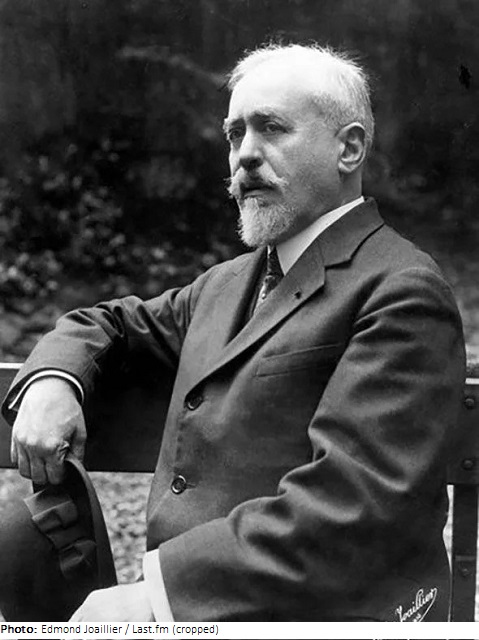
| Roles | Referee |
|---|---|
| Sex | Male |
| Full name | Paul Abraham•Dukas |
| Used name | Paul•Dukas |
| Born | 1 October 1865 in Paris Ie, Paris (FRA) |
| Died | 17 May 1935 (aged 69 years 7 months 16 days) in Paris XVIe, Paris (FRA) |
| NOC |  France France |
Paul Dukas was a student at the Paris Conservatory from 1882-88. During this time, he won the 1st prize for counterpoint and fugue and the 2nd Rome prize with his cantata Velléda (1888). In 1892, he began writing music reviews for the Revue Hebdomadaire, the Gazette des Beaux-Arts, and others. From 1910-13 and again from 1928-35, he was a professor of the orchestra class at the Conservatory. In addition, he also taught at the Ecole Normale de Musique.
Although Dukas was not a prolific composer, he wrote a masterpiece with his orchestral scherzo L’Apprenti Sorcier (The Sorcerer’s Apprentice, 1897), based on Goethe’s ballad of the same name, and one of the most beautiful French operas in the Impressionist style with Ariane et Barbe-Bleue (Ariadne and Bluebeard, first performed in 1907), based on a libretto by Maurice Maeterlinck. Among his other notable works are the Symphony in C Major (1897) and the ballet La Peri (1912). His music was influenced by Richard Wagner, among others. A perfectionist, Dukas destroyed several manuscripts of his unfinished compositions shortly before his death.
In 1906 he was made a knight and in 1913 an officer of the Legion of Honor, and in 1934 he was elected to the Académie des Beaux-Arts.
| Games | Sport (Discipline) / Event | NOC / Team | Phase | Unit | Role | As | |
|---|---|---|---|---|---|---|---|
| 1924 Summer Olympics | Art Competitions |  FRA FRA |
Paul Dukas | ||||
| Music, Open (Olympic) | Final Standings | Judge |